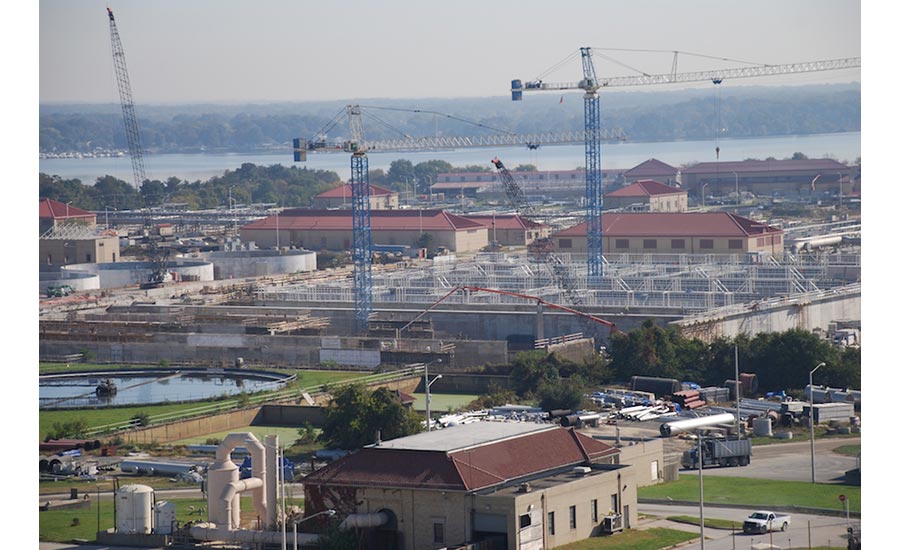Baltimore has received U.S. Environmental Protection Agency approval for a $202-million, low-interest federal loan to help pay for a package of upgrades at the city’s Back River Wastewater Treatment Plant and other infrastructure improvements.
The loan, whose approval EPA announced on Feb. 25, is part of the Water Infrastructure Finance and Innovation Act (WIFIA). It will account for 21% of the Baltimore improvement program's $942-million total cost.
The Maryland Dept. of the Environment is contributing $280.5 million from a state water revolving fund, which draws on federal grants, and $47.5 million from the state’s Chesapeake Bay restoration fund.
The federally subsidized loan would save the city $40 million, compared with the cost of bond financing, according to EPA.
Besides improvements to the wastewater treatment plant, the work will include stormwater management and pipe and manhole rehabilitation on the sanitary sewer collection system. According to EPA, the collection-system improvements aim to help eliminate sanitary sewer overflows. [View EPA fact sheet here.]
Baltimore is under a 2002 consent decree, which was modified in 2017, with EPA, the Justice Dept. and the state Dept. of the Environment to deal with sanitary sewer overflows, which are Clean Water Act violations.
The WIFIA program was established by federal statute in 2014 but EPA didn’t approve its first WIFIA loan until last year, partly because of a low level of federal appropriations.
But thanks to $63 million in federal fiscal 2018 funding for WIFIA, EPA has stepped up its implementation of the program. The loan to Baltimore is the seventh WIFIA loan that the agency has approved—all since April 2018. The cumulative loan volume totals slightly more than $1.9 billion.



Post a comment to this article
Report Abusive Comment